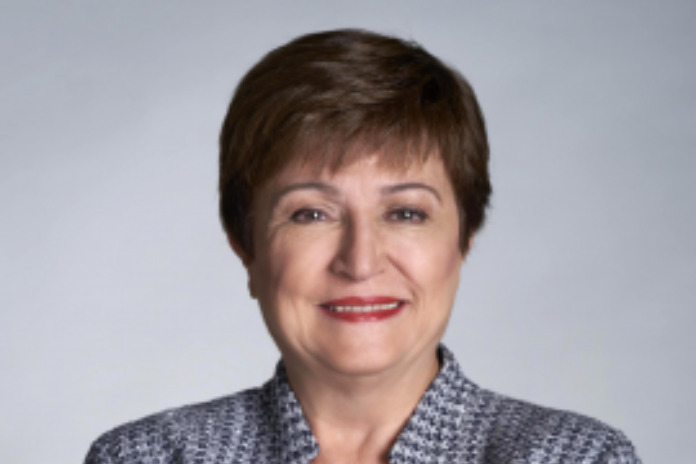– Session on Women’s Economic Inclusion and Participation As a Key to Building Peace
Our session March 8, on International Women’s Day, is an opportune time to reflect on the strength of women in the face of war and destruction.
Tragically, in far too many places this strength is being relentlessly tested. My heart goes to all the women bracing the horror of war, protecting their children, caring for the wounded, sacrificing for their countries, their communities, their families.
Today this is the fate of our sisters in Ukraine – we admire your courage, we share your pain, we stand with you.
Women bear disproportionately the devastation of wars, and yet women are the best hope for peace. In the words of Zainab Salbi “Like life, peace begins with women. We are the first to forge lines of alliance and collaboration across conflict divides.”
Today, I’d like to make three points.
First: crises – be they pandemics, conflicts, or more traditional economic and financial crises – threaten to set back years of progress in gender equality and, thus, development.
Take the pandemic. Globally, twice as many women as men lost their jobs due to the precarity of their employment, lower social protection, and often the burden of childcare and unpaid work.
And the learning losses leave lasting scars, with 20 million girls in developing countries that may never return to school, suffering potentially significant labor earning losses.
The pandemic also saw a dramatic rise in gender‑based violence, with serious socio-economic consequences.
As dramatic as these effects are, they are even more harmful to women and girls in situations of fragility and conflict.
But the reverse is also true: empowering women and reducing gender inequality in fragile or conflict situations can have powerful economic benefits. If sub‑Saharan African countries reduced gender-based violence closer to the world average, they could see long-term GDP gains of around 30 percent.
This brings me to my second point: gender equality is critical for growth, resilience, and socio-economic stability.
When women and girls can reach their full potential, they do better, economies do better – and that is to the benefit of everyone.
The IMF’s analysis shows that improving gender equality can raise economic growth, strengthen resilience, enhance financial stability, and reduce income inequality.
Societies with more gender equality tend to be more resistant to violence and conflict.
And the equal participation of women in socio-economic life is essential to prevent conflict and help transition out of fragility.
Yet, too often, women remain under-represented and excluded from decision-making processes.
To change that, we need all hands on deck to bring peace, reduce fragility, increase resilience, and close gender gaps -which is my third point.
We, international partners, national institutions, and private actors, all have an important role to play.
The IMF focuses on helping countries design and implement macroeconomic and financial policies to ensure greater resilience and growth. This includes, for instance, ensuring that social spending is efficient and can last, supported by sustainable fiscal policies.
We believe that a country-tailored approach is vital in our new strategies on gender that we are developing, and on Fragile and Conflict-Affected States, which we present to the IMF Board tomorrow.
The latter, for instance, proposes to develop and implement tailored Country Engagement Strategies to help us better identify the drivers of fragility such as gender inequality, climate change, forced displacement, or food insecurity.
In support of this, we also aim to scale up our engagement with humanitarian, development, peace, and security actors –including with our friends in UN agencies.
Let me conclude with this thought.
Women and girls are themselves powerful agents of change. They help societies transition from fragility to stability, building a better future for all.
We saw it in peace processes from Northern Ireland to Colombia. And in places like Liberia, where a movement of women helped bring an end to the civil war.
To all the women and girls listening: believe in yourself. Dare to reach your full potential. You have the power to forge a brighter future for our societies, our economies, our world.
Believe in yourselves because we believe in you.





